
Sir
Ian McKellen is a consummate performer, an actor’s actor.
Having been into acting from a very young age, he is one of the few
thespians left who is classically trained. And
while stage might be his first love, he is showing up on the big screen more
and more, starring in two big summer films this year alone.
And you might think that being in two high profile movies may weather
this seasoned gentleman, but quite the contrary, he’s still all about the
craft of acting.
I sat
down with the man who has become a household name with such loved characters
as Gandalf and Magneto (not to mention my favorite role, that of the wicked
ex-Nazi in Bryan Singer’s APT PUPIL!), to talk about his upcoming films THE
DA VINCI CODE and X-MEN:
THE LAST STAND, working with new to X-Men director Brett Ratner and his
return to the stage.
Ian
McKellen

Had
you read The Da Vinci Code prior to making the film?
No, I
hadn’t.
Have
you read it since?
I
have.
How
close does your portrayal of Sir Leigh Teabing mirror the book?
The
book is a bit short on character. The
plot is what keeps you turning the page.
It’s that you get to know more about the characters, as it would
happen in some novels, but you get more of what they’re interested in, the
code, everything to do with Leonardo and Jesus and Mary.
And actually, the description of Leigh Teabing makes me an
inappropriate casting; he’s small and round and rubicund and white hair, I
think balding and a jolly man, while I’m rather gaunt and narrow.
But
Ron Howard didn’t care and I don’t think Dan Brown (the author of the
novel) did, because the only description you get of Leigh Teabing is when
you first meet him and thereafter his size is forgotten, of course he is on
crutches, or sticks in our case, not crutches.
So that was of interest, but I thought he was a really interesting
man and there was lots for me to delve about in.
How did he get his polio for example?
What was his relationship with his wife?
And we’ve filled in a whole back story and if you’re looking, you
can see it because the house is full of different clues as to his past life
and has nothing to do with the plot really.
Your
character has been described as the sphinx of the story and a puppet master,
can you tell us more?
Well,
you see, I’m in a bit of a bind here, because am I to reveal what my
character actually is, because if I do that, then one of the excitements of
the film is gone. He just seems
to be someone who is hugely enthusiastic about the business of Jesus and
Mary. And he is indeed, but his
interest is so intense that it encourages him to do things that perhaps he
shouldn’t do and I wouldn’t want to go any further then that.
What
is it like to be apart of a film that has so much speculation, news stories,
and all the overall fascination with the book?
Have you ever experienced anything like it before?
Yes I
have Lord of the Rings, fifty times, a hundred times bigger then Da Vinci
Code. Millions around the world,
over all the generations, they were much, much more…and a book which for
them was central to their lives. It
wasn’t just an exciting read; it was a book that they read twenty times in
some cases. They were very, very
interested in the movie, very disturbed, was it going to be the movie of
their book or was it going to be Peter Jackson’s book.
I think with Da Vinci Code, I doubt if people have read it more then
once. It’s not that sort of
book, you understand, it as you go along and having understood it it’s
like a crossword; after you’ve done a crossword, you don’t rub it out
and do it all over again, do you? (Smiles)
I don’t know. You go to
another one. But of course
there’s immense interest, but it’s not the same sort of interest as you
got with Tolkien, where it was almost like filming the bible to some people.
What
do you think of the reaction by the Catholic Church to the actual film, as
opposed to the book which had already sold millions of copies?
I
noticed that. Probably a bit of
snobbery in there somewhere, that the people who go and see movies, there
minds aren’t quite as finely attuned as people who actually read the book,
is that what the Vatican’s thinking? Therefore
they have to be protected? Well,
I don’t approve of censorship, I don’t approve of having lists of things
that you can’t see. The only
good thing about it is of course, once you publish a list of things you
can’t look at or can’t read, it makes people want to do exactly what you
don’t want them to do. So I
think on the whole those elements in the Catholic Church that are kept
quiet, like doing the right thing, just accept this is a fictional thriller.
But
Dan Brown may claim more of it, I think the facts in Da Vinci Code may well
be challengeable, but maybe the truths are not, maybe he’s onto something
about the nature of institutions which has been as grounded and as powerful
as long as the Catholic Church has, maybe it isn’t quite the organization
it seems to be from the outside. Maybe
there are secrets and that would be a truth about an organization like the
Catholic Church that’s probably incontrovertible.
But the facts, the details of his criticism, I am happy to believe
have all been made up.
Do
you think that the book, which is a work of fiction, has been somewhat
misunderstood by it’s detractors?
Well,
while I was reading it, I was nodding away thinking, yeah, that’s right, I
bet, umm, I bet that’s right. (Laughs)
I can understand why people are exercised by the effect that the book
might have, but I think most people who have read the book just praise it
for being a rattling good yarn. And
that’s what the movie will be.
Can
you talk a little bit about working with Ron Howard on this film?
Well
you know better then I do, I mean you’ve been watching him for years,
he’s like that, he’s absolutely like that.
He’s as enthusiastic as a kid about it all, he’s nervous, he
can’t quite believe I think his luck, that he’s allowed to play with the
grown ups, I mean I get that feeling from it.
And he is super efficient, so when he tells you, when he first talks
to you I want you to film on this day and you will end on that day, that’s
the way it works out. He’s
brilliant and having been an actor himself of course, he’s very
sympathetic to the problems of acting and can often see things another
director wouldn’t, cause as an actor he can see what’s going on.
He and
Tom got on extremely well and that was important, you felt there was sort of
twin leaders. And Akiva Goldsman
(the screenwriter), very unusual being there the whole time.
He and Ron, you felt at times, were directing it together; I mean
they were puzzling over problems together.
Everything was shared, it was all very open and I hadn’t expected
that and we rehearsed for about two weeks in Paris and which is a wonder
where getting, you know, a bit unnerving to suddenly find your working with
Tom Hanks. And actually around
the table with him like we did for four, five weeks and heard what he’s
got to say and have him listen to what you’ve got to say, then things
relax. And Ron was very good in
that way.

Was
Director Bryan Singer a major influence in doing the original X-Men and what
was it like doing the third film without him?
Well
he had, no more than I, known about X-Men until a friend showed him and
introduced him to X-Men and he got, as I did, very excited about the idea of
the story. So we were all not
alarmed, but interested in what new direction Brett Ratner’s arrival would
take the films. And there was no
worry, because Brett was so in love with the first two films that he wanted
to make a third that looked as though it had been directed by Bryan Singer.
His own words, so we’ll see whether he’s achieved that or not.
I think the plot is a lot more interesting then the previous two, so
it’s sure to be at least as exciting and Magneto gets to do an awful lot
in this film, which he didn’t in the second one, so I very happy about it.
So it’s not going to be a change of direction, it’s not like Tim
Burton is suddenly coming in and doing his stuff.
Brett Ratner is doing basically what Bryan did.
But
with Bryan having already directed you previously in Apt Pupil, was the fact
that he was directing a major influence for you even taking the role in the
X-Men films?
Yes,
well it always is with me, I mean it’s never just the part, it’s who’s
going to direct it and how well is the part written and all sorts of things.
But I had to take this on trust, cause I didn’t know Brett and I
didn’t know much of his work either, but I was pretty well committed to
doing the film before hand. He
arrived very late in the day, eight weeks before we started shooting and
very, very, very difficult job and I felt very sorry for him really, cause
you need eight months to prepare a movie like this.
I only finished doing – I did the last bit of voicing of Magneto two
days ago.
The
thing that always comes up about Brett is his enthusiasm, how does that
manifest itself on set and set the tone?
Well,
you can’t be a good director unless you can hold a good party, is what I
think. Because at good party,
you’ve got a group of people who you’ve specifically brought together
because you think they’ll get on, and your job is to make them get on.
Your job is not to have a good time, it’s to make sure they have a
good time. You treat each of
them differently, you make sure they’ve got the right drink in their hand,
you say the right words of encouragement, you introduce people, you’re the
facilitator. And that’s what
Brett is brilliant at, absolutely.
Bryan’s
not very good at that, I’ve never been to a party at Bryan’s, I dread to
think what it would be like. Bryan
is much more internal and self obsessed and neurotic and that comes out
doesn’t it, in the films he makes. It’s
part of what he does. Brett’s
a party animal; Brett wants everyone to have a good time.
But that’s a very, very good atmosphere for a movie of this sort,
where there are long , long waits, you know, like things are being set up,
where the scenes aren’t that intense, you can’t get really lost in the
dialogue of an X-Men movie. So
it’s very good to have the leader keeping everyone’s spirit’s up and
that’s what he does.
Would
you say it was a happier shoot then the last two?
Well,
it’s just different. Who knows
what it would have been like with Bryan this time because we all know what
we’re doing, we’ve done it now for three films, it wasn’t new
territory, it was plain sailing really and it probably would have been if
Bryan had been directing this time.
With
the X-Men being considered a metaphor for any persecuted minorities, what
kind of reaction have you gotten from places like the gay community?
Well
less then I would have hoped actually. I
mean certainly Marvel says that the demographic for the comics is young
blacks, young Jews, and young gays, they respond most to the idea of
mutantcy. They, more then most
teenagers, feel that, are taught to believe that they are mutants.
So when you get a story like this one, in which a cure is found, a
cure for being black, a cure for being gay, a cure for being a mutant, it
comes right home. But actually
in the circles I move in, the gays have never heard of X-Men, I think it’s
more an American phenomenon then British and maybe younger then the crowd
that I mix with. It’s not just
an adventure story, to a lot of people who see it.
There
is a scene in the film where Magneto is throwing cars off the Golden Gate
Bridge…
Is
that what I was doing, I never quite knew. (Laughs)
How
much are you able to get into a major scene like that one?
They
just have to tell you what it’s going to be like, what it is you’re
doing. There is a lot of the
filming which is of that sort; you have to take it on trust.
What
do you think about Fox developing a Magneto prequel?
Well,
I’m not surprised, that’s of course what the comics have been doing for
years, they been having prequels and sequels and changing the plot.
Going back to the past and it would be an obvious thing to do, to
have a young Magneto story.
Who
would you like to see play you?
Well,
I will be playing the part. (Smiles) The
first time that Patrick Stewart and I appear in this film, we appear to be
twenty-five years younger then we are and that’s been done by a technology
never used in filming before, which involves no make-up, no special effects
whatsoever, we just go into the studio and do the scene as is.
And then they morph our faces onto photographs of ourselves
twenty-five years ago and they we are. It
can take any shaped person and they can slim you down, they can build you
up, you can bring out your shoulders, change the color or style of your
hair.
And
they removed so many wrinkles from my face, I looked so young, that Brett
Ratner said go put a few wrinkles back, it’s looking ridiculous.
So it would mean that I could play myself at twenty-five easily, as
long as I could keep myself sounding young.
That’s the big story of this movie; that stars realize that they
don’t have to have face lifts anymore, at least as far as their work is
concerned. It’s astonishing;
it’s like airbrushing, but for the moving picture.
So
is it true that the stage production of King Lear your next project?
Lear?
(Correcting my pronunciation) Lear. (Smiles)
There’s a wonderful actor Ralph Richardson, who is no longer with
us, who played many parts in his life, both stage and film and he said to a
friend of mine “you know one day walking along, the sun is in the sky and
not a cloud to be seen and the birds are tweet, tweet tweeting.
I’m feeling well, there’s nothing wrong, I’m…oh, you found
you’ve got your foot caught in a Lear.”
And that’s what I’ve done, I’ve got my foot caught in a Lear
and I don’t know what I’m gonna do, I think I’m gonna have to play
him. So I’m taking a year off
now to get ready, it’s a big part, it’s like climbing Everest, I’ve
got to get into training. Learn
the lines and find out what it’s all about.
And
where will this be?
In
Stratford in the UK, where they’re doing the whole of Shakespeare’s
plays this year. Seven plays will be done, some will be visiting companies,
F. Murray Abraham is doing The Merchant of Venice for example, but some will
be done by the company itself and ours is the last play to be done.
And then we’ll tour, we’ll come to the States and Australia and
India, I hope. And then you can
all come to my funeral. (Smiles)
Thank
you Sir.
Thank
you.






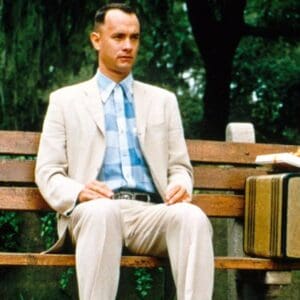
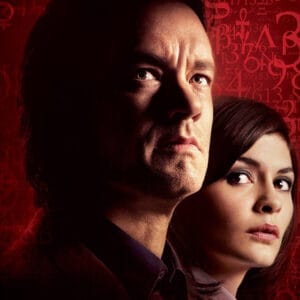
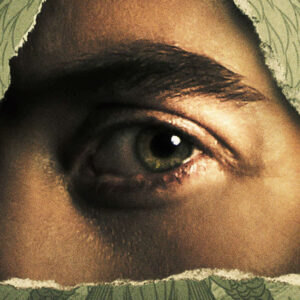
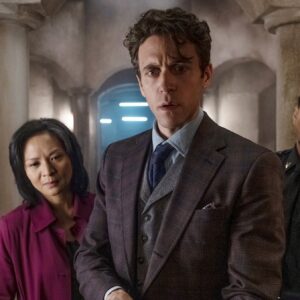
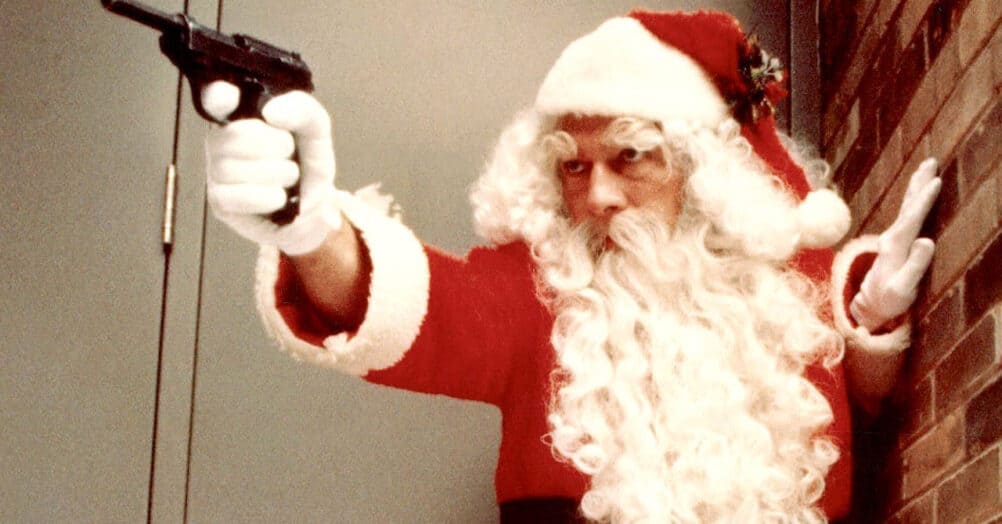

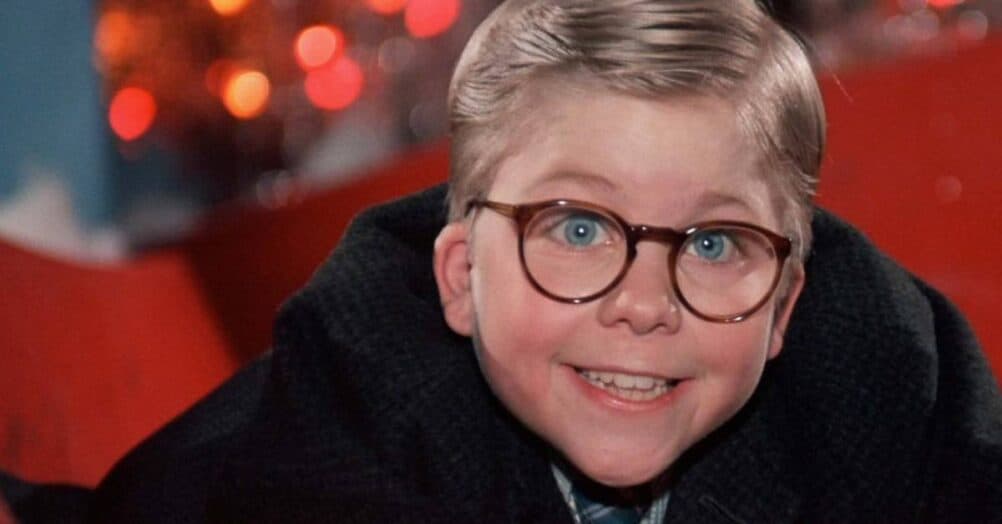







Follow the JOBLO MOVIE NETWORK
Follow us on YOUTUBE
Follow ARROW IN THE HEAD
Follow AITH on YOUTUBE